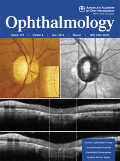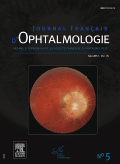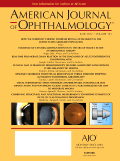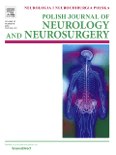
JOURNAL OF NEURO-OPHTHALMOLOGY
Scope & Guideline
Pioneering Discoveries in Vision and Neurological Disorders
Introduction
Aims and Scopes
- Clinical Neuro-Ophthalmology:
Research primarily focuses on the clinical aspects of neuro-ophthalmology, including diagnosis and management of conditions like optic neuritis, idiopathic intracranial hypertension, and various forms of optic neuropathy. - Neuroimaging Techniques:
The journal emphasizes the use of advanced imaging techniques, such as MRI and optical coherence tomography, to enhance diagnostic accuracy and understand the pathophysiology of neuro-ophthalmic conditions. - Autoimmune and Inflammatory Disorders:
There is a significant focus on autoimmune and inflammatory diseases affecting the visual pathways, including giant cell arteritis and myelin oligodendrocyte glycoprotein antibody-associated disorders. - Genetic and Familial Disorders:
Research into genetic factors influencing optic neuropathies and other neuro-ophthalmic conditions is prominently featured, with studies exploring familial patterns and novel genetic variants. - Impact of Systemic Diseases on Vision:
The journal addresses how systemic diseases, such as diabetes and cancer, contribute to visual impairments and the mechanisms behind these associations. - Emerging Therapies and Interventions:
There is a notable emphasis on innovative therapies, including pharmacologic treatments and surgical interventions, aimed at improving visual outcomes in patients with neuro-ophthalmic disorders.
Trending and Emerging
- COVID-19-Related Neuro-Ophthalmic Complications:
A significant trend in recent publications is the exploration of neuro-ophthalmic complications arising from COVID-19 and its vaccines, reflecting the ongoing impact of the pandemic on ocular health. - Artificial Intelligence and Machine Learning:
Emerging studies on the application of AI and machine learning in diagnosing and managing neuro-ophthalmic conditions show a growing interest in utilizing technology to improve clinical outcomes. - Telemedicine in Neuro-Ophthalmology:
The journal is increasingly publishing articles on telemedicine, highlighting its role in expanding access to neuro-ophthalmic care, especially in the context of the COVID-19 pandemic. - Cross-Disciplinary Approaches:
There is a rising trend in interdisciplinary research that combines insights from neurology, ophthalmology, and other fields such as genetics and epidemiology to enhance understanding and treatment of neuro-ophthalmic conditions. - Patient-Reported Outcomes and Quality of Life:
An increasing emphasis on patient-reported outcomes and quality of life assessments indicates a shift towards understanding the holistic impact of neuro-ophthalmic disorders beyond clinical metrics.
Declining or Waning
- Basic Science Research:
The journal has seen a declining trend in the publication of purely basic science research, with a shift towards more clinically relevant studies and translational research. - Older Diagnostic Techniques:
There has been a noticeable decrease in articles focusing on traditional diagnostic techniques that have been largely replaced by more advanced imaging and diagnostic tools. - General Ophthalmology Topics:
Topics that are purely ophthalmological, without a neurological component, appear to be less frequently addressed, as the journal's focus narrows to the neuro-ophthalmic implications of visual disorders. - Historical Perspectives in Neuro-Ophthalmology:
Fewer articles are being published that focus on historical analyses or perspectives within the field, suggesting a trend towards contemporary issues and current research.
Similar Journals

OPHTHALMOLOGY
Fostering dialogue and discovery in ocular health advancements.OPHTHALMOLOGY is a leading journal in the field of ocular health, widely recognized for its contributions to advancing the understanding and treatment of ophthalmic conditions. Published by ELSEVIER SCIENCE INC in the United States, it has earned a prestigious place within the academic community, boasting a remarkable Q1 ranking in the ophthalmology category for 2023, along with an impressive Scopus rank of #2 out of 137, placing it in the 98th percentile. With a strong publication history dating back to 1958, OPHTHALMOLOGY encompasses high-quality research articles, reviews, and clinical studies that address critical issues in the field. Researchers, professionals, and students alike can access its comprehensive research through traditional subscription options, fostering an ongoing dialogue among experts. Whether you are seeking the latest treatments, understanding complex ocular diseases, or looking to advance your knowledge, OPHTHALMOLOGY remains an essential resource for cutting-edge research and insights.

Annual Review of Vision Science
Catalyzing Discoveries in Visual HealthThe Annual Review of Vision Science is an esteemed journal published by ANNUAL REVIEWS, focused on advancing the field of vision science through comprehensive reviews that synthesize current research and emerging trends. With an ISSN of 2374-4642 and E-ISSN 2374-4650, this journal has established itself as a leading source of high-quality academic content, boasting a prestigious Q1 ranking in the fields of Medicine (miscellaneous), Neurology (clinical), and Ophthalmology as of 2023. Its impressive Scopus rankings further attest to its influence, placing it in the top 5 within ophthalmology (96th percentile) and 31st in clinical neurology (92nd percentile). The journal aims to serve researchers, clinicians, and students alike by providing critical insights into vision science, thereby enhancing understanding and fostering innovation in both basic and applied research. Although not open access, the Annual Review of Vision Science remains a vital resource for those engaged in the study and application of vision science worldwide.

Clinical Pediatric Endocrinology
Advancing pediatric health through innovative endocrine research.Clinical Pediatric Endocrinology is a prestigious journal dedicated to advancing the field of pediatric endocrinology, published by the Japanese Society of Pediatric Endocrinology. With a respectable ISSN 0918-5739 and E-ISSN 1347-7358, this journal serves as a critical platform for innovative research spanning various aspects of endocrine disorders in children, including diabetes and metabolic conditions. Although it does not currently offer open access, it remains highly relevant in its category, being ranked in Q4 and Q3 tiers across multiple specialties as of 2023. With a publication history that spans from 1992 to 2024, this journal has contributed significantly to the literature, as evidenced by its inclusion in prominent databases. It invites submissions from researchers and practitioners worldwide, aiming to facilitate knowledge sharing and improve clinical practices in pediatric endocrinology. For those dedicated to enhancing care outcomes in children with endocrine disorders, Clinical Pediatric Endocrinology provides essential insights and fosters a community of engaged professionals.

DOCUMENTA OPHTHALMOLOGICA
Elevating Knowledge: Where Clinical Excellence Meets Rigorous ResearchDOCUMENTA OPHTHALMOLOGICA is a prestigious journal published by SPRINGER, dedicated to advancing the field of ophthalmology since its inception in 1938. With a robust ISSN of 0012-4486 and an E-ISSN of 1573-2622, the journal has consistently delivered high-quality research, meriting a Q2 classification in Ophthalmology and a Q3 classification in both Physiology and Sensory Systems as of 2023. Located in the Netherlands at VAN GODEWIJCKSTRAAT 30, 3311 GZ DORDRECHT, DOCUMENTA OPHTHALMOLOGICA aims to publish rigorous studies, reviews, and innovations that bridge clinical practice and research. Although it does not currently offer Open Access options, the journal remains vital for researchers, professionals, and students seeking to stay abreast of developments in visual sciences and contribute to foundational knowledge in these domains.

JOURNAL FRANCAIS D OPHTALMOLOGIE
Fostering collaboration in the global ophthalmological community.JOURNAL FRANCAIS D OPHTALMOLOGIE, published by MASSON EDITEUR, is a prominent peer-reviewed journal that serves as a vital resource in the field of ophthalmology. Launched in 1978, this esteemed publication continues to make significant contributions to the advancement of ocular health and vision science, with its scope encompassing clinical practices, innovative research, and the latest technological advancements in ophthalmic care. Based in France, the journal is recognized in the 2023 category quartiles with a Q3 ranking in ophthalmology, reflecting its dedication to quality scholarship within a competitive landscape, as evidenced by its positioning in the 30th percentile of the Scopus rankings. While it operates without Open Access, the journal remains crucial for professionals, researchers, and students alike, providing a platform for sharing knowledge and fostering collaborations in the global ophthalmological community.

AMERICAN JOURNAL OF OPHTHALMOLOGY
Elevating Standards in Ophthalmic ResearchAmerican Journal of Ophthalmology, published by Elsevier Science Inc, stands as a premier outlet for significant advancements in the field of ophthalmology. Established in 1918, this journal has a long-standing tradition of disseminating high-quality research, which is reflected in its impressive Scopus ranking, positioned at #8 out of 137 in the ophthalmology category, placing it in the 94th percentile. With its 2023 designation as Q1 in Ophthalmology, it serves as a critical platform for researchers, practitioners, and students who seek to stay at the forefront of ocular health and visual science. Although the journal does not currently offer open access options, it provides an array of access formats, ensuring that valuable research is available to a broad audience dedicated to the exploration and understanding of eye diseases and treatments. As it continues to evolve towards 2024, the American Journal of Ophthalmology remains essential for anyone engaged in ophthalmic research and clinical practice.

Eye and Brain
Advancing the frontiers of vision and perception.Eye and Brain is a distinguished open-access journal published by DOVE MEDICAL PRESS LTD, specializing in the interdisciplinary fields of ophthalmology and neuroscience. Since its inception in 2009, the journal has been committed to disseminating high-quality research that enhances understanding of visual perception and neural processes related to vision. With an impressive Scopus ranking in the 92nd percentile for Ophthalmology and the 89th percentile for Neuroscience Sensory Systems, Eye and Brain stands at the forefront of scientific inquiry, providing essential insights into cellular and molecular mechanisms underlying vision and sensory integration. The journal is dedicated to publishing articles that address critical challenges and advancements in these fields, making it a vital resource for researchers, professionals, and students alike. Situated in New Zealand, Eye and Brain not only represents a global collaboration in the eye and brain sciences but also offers a platform for groundbreaking research in the evolving landscape of sensory systems. Submissions are welcomed from across the globe, encouraging a broad spectrum of viewpoints and methodologies.

NEUROPATHOLOGY
Innovating Insights into Neurological HealthNEUROPATHOLOGY, an esteemed journal published by WILEY, is a pivotal platform in the fields of medicine and neurology, focusing on the intricate relationship between pathology and neurological disorders. Established in 1993 and continually evolving until 2024, the journal holds a notable presence within the academic community, as evidenced by its current Q2 ranking in several categories including Medicine (Miscellaneous), Neurology (Clinical), and Pathology and Forensic Medicine. With a Scopus ranking placing it within the top 30% of its field, NEUROPATHOLOGY serves as a vital resource for researchers, healthcare professionals, and students dedicated to advancing their knowledge of neuropathological processes. Although not an Open Access journal, it ensures accessibility to cutting-edge research and insights that shape contemporary understanding and clinical practice. Its robust impact factor underscores the journal's critical role in disseminating innovative findings within the realms of neurology and pathology, making it an essential read for those at the forefront of medical research.

Neurologia i Neurochirurgia Polska
Shaping the Future of Neurological CareNeurologia i Neurochirurgia Polska is a prestigious Polish journal dedicated to advancements in the fields of neurology and neurosurgery, published by VIA MEDICA. With a rich history dating back to 1967, this journal serves as a critical platform for disseminating significant research findings and clinical practices that advance our understanding of neurological disorders and surgical interventions. Registered under ISSN 0028-3843 and E-ISSN 1897-4260, it boasts commendable rankings as reflected in its 2023 categorical quartiles: Q3 in Neurology (Clinical) and Q2 in Surgery, indicating its substantial impact within these domains. Furthermore, its Scopus rankings reveal that it is positioned at Rank #125/551 within Medicine-Surgery and Rank #187/400 in Medicine-Neurology (Clinical), showcasing its importance in academic and clinical circles. Although not currently open access, the journal remains accessible to readers and practitioners who seek to stay updated on innovative research and methodologies. The journal’s objective is to foster knowledge exchange and stimulate scientific dialogue among researchers, professionals, and students, thus shaping the future of neurology and neurosurgery in Poland and beyond. Located at UL SWIETOKRZYSKA 73, 80-180 GDANSK, POLAND, it invites contributions that inspire and elevate the standards of medical practice.

Neurological Sciences and Neurophysiology
Bridging clinical practice with cutting-edge research.Neurological Sciences and Neurophysiology, published by Wolters Kluwer Medknow Publications, serves as a pivotal platform for dissemination and discussion of recent advancements and research in the fields of neurology and neurophysiology. Since its transition to an Open Access format in 2020, this journal aims to enhance accessibility to crucial developments in neurological sciences for researchers, professionals, and students alike. With an ISSN of 2636-865X, it seeks to bridge the gap between clinical practice and experimental science, promoting innovative approaches to neurological disorders. While currently ranked in the Q4 quartile in the Neurology category, the journal is committed to improving its standing through rigorous peer review and publication of high-quality research. The journal's scope encompasses a wide range of topics, ensuring that it appeals to a diverse audience, while its Scopus ranks indicate its emerging presence in the global scientific community. Located in Mumbai, India, the journal welcomes contributions that push the boundaries of our understanding of the nervous system, making it a vital resource for scholars in this dynamic field.